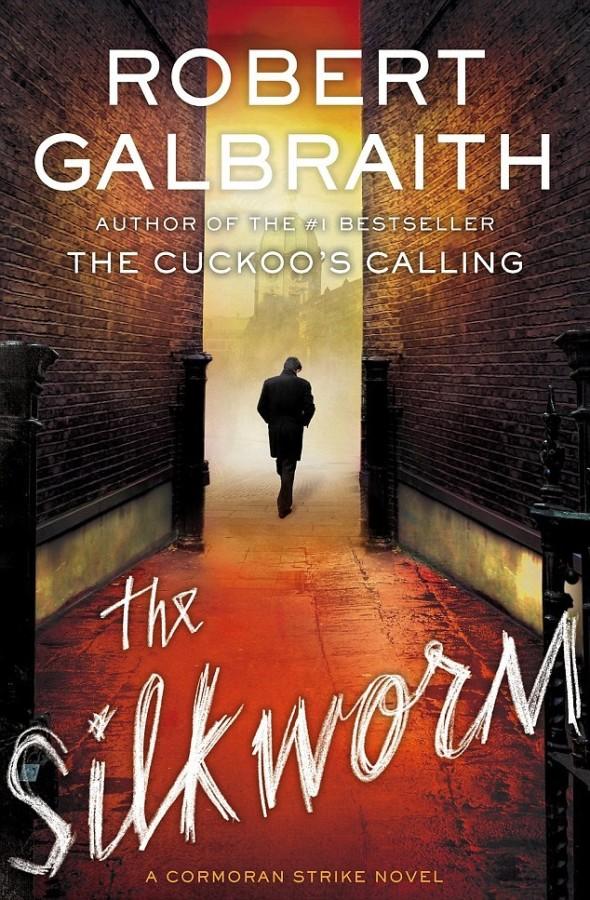THE SILKWORM (Book Review)
This book may not have been as bad for me as I deem it to be had I not read Rowling’s brilliantly profound The Casual Vacancy before doing so, or perhaps it is the admiration for an author who I knew could have done better.
March 15, 2015
The Silkworm is written by J.K. Rowling under the pseudonym Robert Galbraith. J.K. Rowling is also the author of the Harry Potter series of seven novels and The Casual Vacancy. The Silkworm is the second novel in the Cormoran Strike series, succeeding The Cuckoo’s Calling.
The novel begins with detective and war veteran Cormoran Strike receiving a call from a middle-aged woman named Leorna Quine, wife of author Owen Quine. She complains that her husband has disappeared on one of his vacations, which often involve parties with fellow authors and affairs with other women. However, as Strike begins to delve into the case, he soon learns the horrifying truth of why Owen Quine had not returned home for several weeks. The novelist recently completed a manuscript featuring many people he knows by expressing appalling imagery, which reveals their deepest and life-ruining flaws. When Quine is found brutally murdered, the race begins to find the true culprit in all of their disturbing sickness.
Although J.K. Rowling is one of my biggest role models, this novel was predictable, not suspenseful, and forgettable. Compared to Harry Potter and The Casual Vacancy, this novel is significantly worse. The characters were flat, having nearly the same reaction to every plot event. Furthermore, the characters seemed so similar to one another–the arrogant and self-centered novelist stereotype–that the names of the characters easily got confused and their roles in the novel got significantly more difficult to keep track of as the book progressed. Granted, I never read the first novel in the series, The Cuckoo’s Calling, but The Silkworm seemed to stand on its own rather than being the second book in a dragging series. There was virtually no complicated outside-information needed from the first novel that a quick Wikapedia search couldn’t fix. Strike dwells a lot on romance and past love, and most of it is awkwardly written and forced. Unlike the characters in Rowling’s Harry Potter and The Casual Vacancy, her characters in The Silkworm were hardly relatable to me as a reader. The plot is slow and the reveals throughout the book were often blurred.
The book was forgettable, more so because of the lack of relatability to the characters and the slow, repetitive plot than anything else. The Silkworm is nearly five hundred pages long, and more often than not, Rowling drags out the plot to the point where it’s hard to keep reading. Most of the time, I kept reading because I wanted to see if the ending to the novel proved my theory of the killer and if there were any huge plot twists or reveals that Rowling is famous for. However, even though the ending was complete, it fell short of my expectations. The Silkworm wasn’t a life-changing book as Rowling’s Harry Potter and The Casual Vacancy were. After I had read the two latter novels, I left feeling something profound, as great books often cause their readers to do. I left The Silkworm feeling absolutely nothing, which made me as the reader personally angry, since I devoted my time to these characters and this story But the author failed to impress. This book may not have been as bad for me as I deem it to be, if I had not read Rowling’s brilliantly profound The Casual Vacancy before doing so, or perhaps it is the admiration for an author who I knew could have done better.


